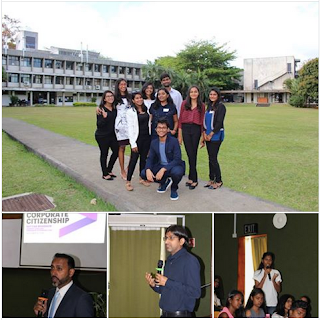The end of 2018 practically marks the 2nd year into my mandate as Pro Vice-Chancellor. Looking back at the achievements of 2017, and the plans for 2018 and comparing with what has been achieved is overall positive, but personally I think much more could have been done. However, as time goes by, one realizes the complexity of this organization and how it is difficult to bring all ingredients together so as to progress faster towards our goals. Nevertheless, this is a huge learning experience.
In 2017 fees for postgraduate courses were reduced massively to encourage more graduates to join the UoM for Masters level programs and to make our courses more accessible to the community. Based on intake numbers for academic year 2018/2019 (Aug 2018 session) we had managed to recruit approximately 300 additional students.
With respect to the internationalization strategy that was approved by Council, the International Affairs Office is now operational and is highly engaged into making staff and student exchange programmes successful, and working with student recruitment agencies to increase the intake of international students. The August 2019 student recruitment will provide us with an indication on how this strategy will fare.
The framework for the GTES has allowed the UoM to get engaged with industry related courses smoothly. Two such programmes are running with Accenture and one with Maubank after the policy had been approved.
As we have moved to the learner-centred credit system modeled on the ECTS (a system that I always thought would be an improvement of the actual teacher-centred credit system of the UoM), the technology-enabled learning policy will now play an important role as the UoM starts implementing the LCCS. LCCS is being piloted and managed by my colleague Pro VC (Academia) with close support from my office. In terms of the eLearning infrastructure, new servers are being purchased, and cloud hosting of the eLearning platform is being envisaged, while ZOOM is being used for the delivery of virtual lectures.
Regarding the BSc Digital Innovation and Enterprise, a partnership with an important IT company and key local player is being formalized and we expect this to be ready for our August 2019 intake. We are also working with the Faculty of ICDT to kickstart short professional certification courses related to the film post-production sector. In terms of consultancy and contract research the figures are just unbelievable with an all time peak of around 50M MUR reached in terms of total project value. Beating this for the forthcoming years might be a real challenge, but the idea is to continue to aim higher and higher.
For 2019, the two key plans are as follows:
- To engage into transformation leadership development at the UoM at all levels through a series of capacity building with the support of a highly experienced local consultant.
- The setting up of the UoM Foundation to allow endowments to the University from benefactors. This is not new as the work had started previously but it had stalled for some reasons.
- Increasing student numbers especially postgrad and international students while stabilizing the intakes on undergraduate programmes through innovative marketing approaches.
- Staff welfare is high on my list, but the task is a bit more difficult than I thought, so it’s part of the longer-term strategy. Two key aspects of focus here – continuous professional development and team-building/leadership/loyalty and sense of belonging/humanity first approach. To achieve these, there are a few hurdles to surmount.
Of course, my office is engaged into a lot of additional activities which have had impacts and I must acknowledge that I am surrounded by a team of highly competent and loyal professionals.
